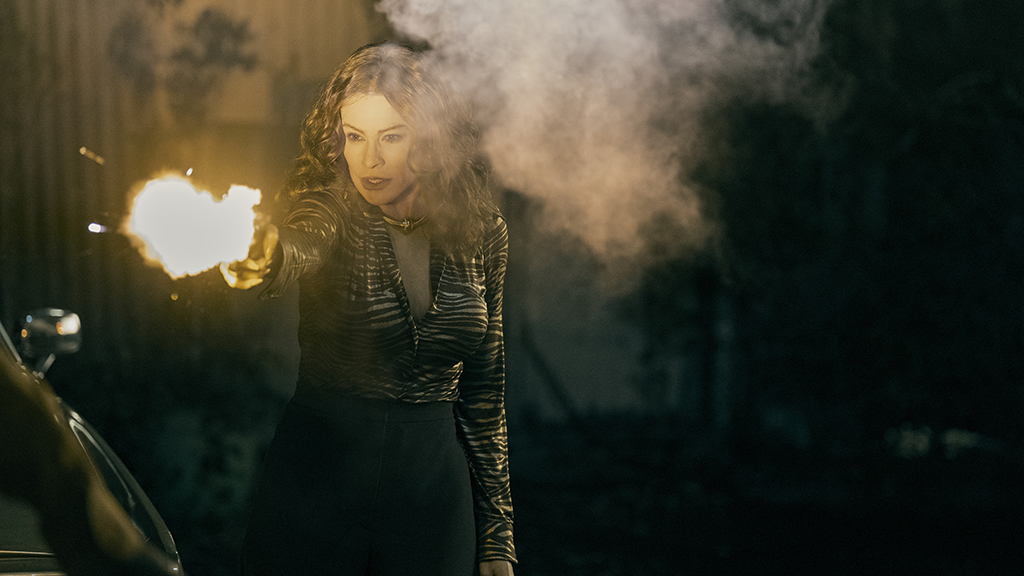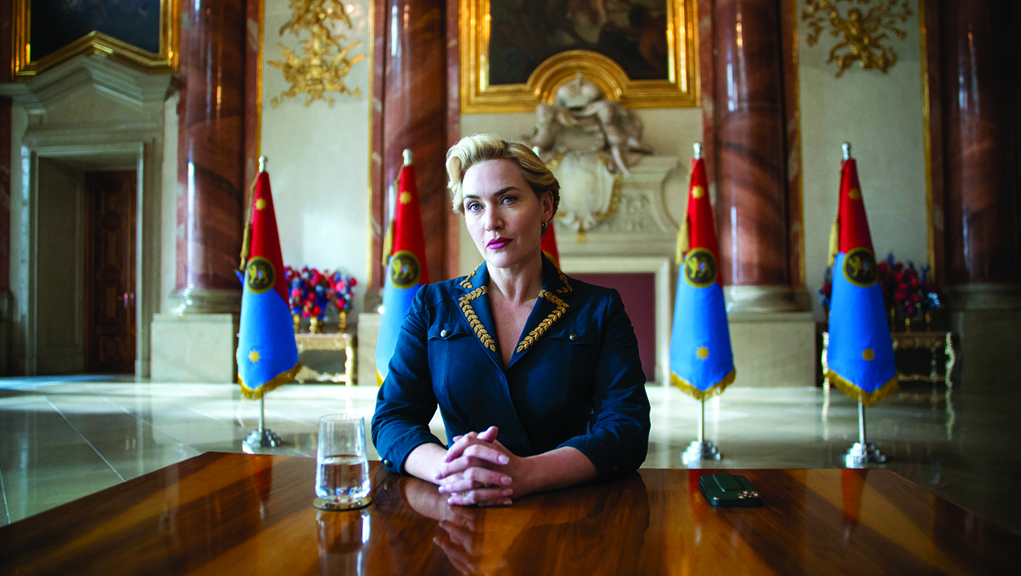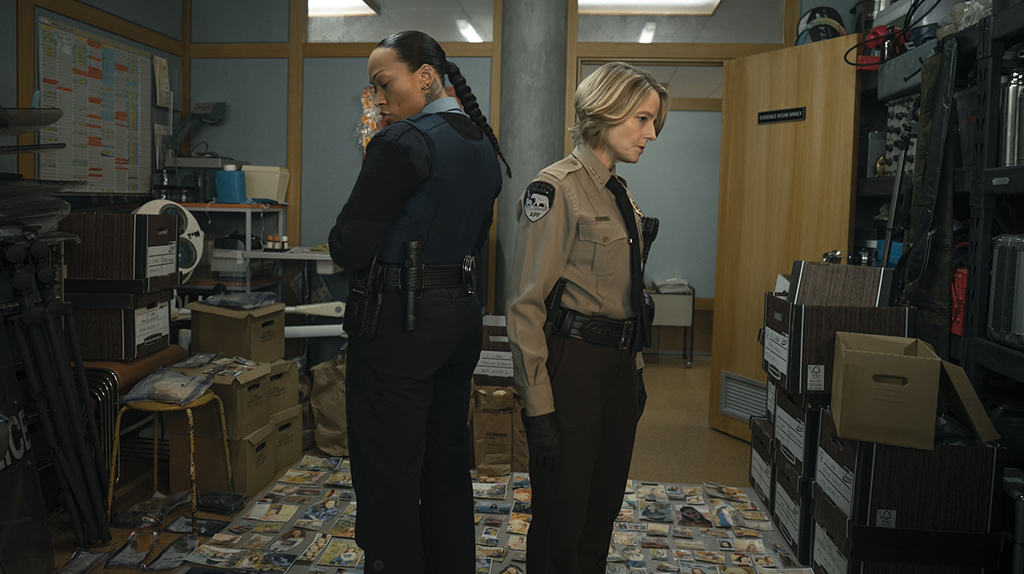
Well before the fourth installment of True Detective premiered, showrunner and executive producer Issa López had a conversation with Jodie Foster, hoping to bring the superstar on board. Foster loved the script, López said, but didn’t quite see herself playing Police Chief Liz Danvers.
Foster said the character might be “bitter and tired and a terrible stepmom,” López shared.
López countered, “You want me to make her into an asshole?”
Foster’s response? “Yup.”
Slowly, the concept of a TV rarity — the female antihero — began to take shape. “We’ve had a lot of beautiful, good TV of the peak era that is based on male antiheroes,” López told Broadcasting+Cable before the True Detective season premiere. “It would be so interesting to get a female one out there.”
The antihero has been a cornerstone of peak TV, but they’ve almost always been men. That is changing. In True Detective: Night Country, Danvers drives her officers to the point of exhaustion. She’s a single woman in constant battle with her stepdaughter. Spiky and anxious, she finds a wee bit of comfort in alcohol and sex.
Still, the smiles are rare.
In episode three, Chief Danvers tells her wholesome young protege Peter to have State Trooper Evangeline Navarro transferred to Danvers’ squad. Danvers and Navarro, played by Kali Reis, have a stormy history.
“I thought you hated Navarro,” Peter says.
“I do,” responds Danvers. “I hate everyone. Hate you, especially now.”
Nonetheless, the audience roots for Danvers.
Other new antiheroes include Sofia Vergara’s title character in Griselda on Netflix, Kate Winslet’s Chancellor Elena Vernham in The Regime on HBO and Nicole Kidman’s Margaret in Prime Video’s Expats.
The trend arises as women continue to grow their economic and social clout, more females move into power positions in television and scripted programs have grown rapidly in recent years, opening the door to more female showrunners and more varied perspectives. It finally “became time to look at women in that morally gray area,” said Linda Ong, founder and CEO of consulting outfit Cultique.
It used to be that leading female characters had to be likable and strong female characters were villains. “Society came around to understand that all humans, men and women, can be good and bad,” Ong said.
Blame Tony
The male antihero, be it Tony Soprano, Don Draper or Walter White, has been around at least since The Sopranos debuted on HBO in 1999. Female antiheroes, not so much.
In an issue of The New Yorker in January, Sofia Coppola told of her efforts to make a series out of the Edith Wharton novel The Custom of the Country with Apple TV Plus, with Florence Pugh cast as Undine Spragg, a temperamental young lady from the Midwest trying to break into high society in New York.
Coppola spoke about how Apple TV Plus killed the show before it aired. “They didn’t get the character of Undine,” she said. “She’s so ‘unlikable.’ But so is Tony Soprano!”
TV pundits were asked to name female antiheroes over the past few decades, and the brief list includes Shiv Roy from Succession, Carrie Mathison from Homeland, Annalise Keating from How to Get Away With Murder and Raquel “Raq” Thomas from Power Book III: Raising Kanan.
In the more recent era, Ong added the female leads from Prime Video’s Mr. and Mrs. Smith, Apple TV Plus’s Lessons in Chemistry and Netflix’s Beef to the list. “Now, women have cultural permission to be as ‘difficult’ — if not more so — as men, instead of needing to be ‘likable,’ ” she said. “Even Taylor Swift’s Grammy-nominated song ‘Anti-Hero’ recognizes this shift. Women like being celebrated as perfectly imperfect, because that’s how a lot of women see themselves.”
Griselda sees Vergara as the wife and business partner of a drug kingpin in
Medellin, Colombia, who moves with her sons to Miami after her husband asks her to pull off a highly immoral maneuver, and picks up the drug trade there. It debuted January 25.
Expats, set in Hong Kong, has three American women, including Kidman’s Margaret, whose lives intersect after a tragedy. It “explores what happens when the line between victimhood and culpability becomes blurred,” according to Prime Video. It premiered January 26.
The Regime has Winslet as the leader of a fictional European country in the midst of a breakdown. It debuted March 3.

Will Tracy, executive producer on The Regime, said he never had the antihero concept in mind when writing the scripts. “I think my hope is just to write a character who is interesting,” he said. “And if the audience finds them interesting too, then hopefully, with time, they might find themselves caring quite a bit more about that character’s well-being than they might have initially thought.”
He added, “Perhaps that’s the very definition of the antihero, come to think of it!”
Annette Bening, who plays matriarch Joy Delaney in the new Peacock drama Apples Never Fall, which sees Joy go missing after she invites a mysterious young female stranger into her home, touched on playing complicated characters at the TCA Winter Press Tour in February. “It’s not just strong characters. That’s kind of a cliche, isn’t it?” she said. “It’s a strong female character, but a strong character is a nuanced one who has flaws, who screws up, who does the wrong thing, who is crazy or eccentric in some way. That’s how people are. People have all these different colors. So, yeah, strong characters are great, but a strong character that has vulnerability is much more interesting.”
Having a big name in the lead role may make it easier for the audience to take on the mostly unfamiliar notion of a female antihero. The thinking is, a viewer may stick with a tricky character longer if it is played by Winslet, Kidman, Viola
Davis or another actress they are well familiar with, and perhaps even fans of.
“If it is perceived as a risk to be a female-led series that refuses to soften the protagonist’s edges, which is in line with the general stereotypes facing female characters across TV’s history,” said Myles McNutt, Old Dominion associate professor of communication and theater arts, “it’s much easier to take that risk when producers feel confident that audiences will tune in to see big stars in those roles regardless of the character in question.”
Staying True
True Detective: Night Country, set in Alaska in the part of winter where the sun does not rise, saw Liz Danvers and Evangeline Navarro as ill-fitting partners facing a cryptic case involving eight scientists who work at a research station who have disappeared, in a remote village where indigenous residents battle with a mining company flagrantly fouling the environment. HBO called season four the most-watched season for the anthology series, averaging 12.7 million cross-platform viewers.

Issa López directed every episode. She is on board for the next season of True Detective. Francesca Orsi, executive VP, HBO Programming, and head of HBO drama series and films, called her a “one-of-a-kind, rare talent that speaks directly to HBO’s creative spirit.”
Time will tell if López dreams up another female antihero for season five. The audience, for what it’s worth, is up for it.
Melanie Marnich, showrunner and executive producer on Apples Never Fall, said the abundance of scripted shows in recent years has meant “more complex storytelling and more complex characters, and finally women are coming to the fore of that, both in the writing and creating of shows and the performances. We’re able to embrace the complexity of a woman, of her drive, of her history, of her desires. I think it’s just a very honest approach to our gender.”






